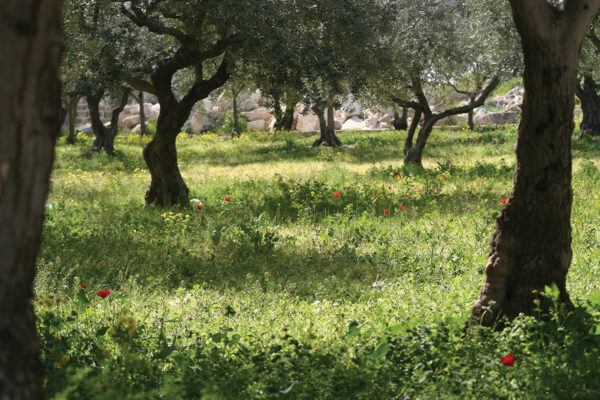Here, IMC Secretary John Klassek interviews evangelists Victor Bangura and Manasseh Boima. Victor Bangura is secretary general of CoG7 in Sierra Leone. Manasseh Boima pastors the Church in Grafton, a region within the capital of Freetown. Their radio programs in the Kailahun District reach into Liberia and Guinea. John Klassek ministers to the CoG7 church in Perth, Australia.
The following is an edited transcript of the video interview.
John Klassek (JK): If I came to Sierra Leone, what might I expect once I get off the plane?
Victor Bangura (VB): One, you will meet friendly people. Then a beautiful environment, although the weather may be warm for you. You will see beautiful trees and beautiful people.
JK: Do you pastor together, or do you pastor in different areas?
Manasseh Boima (MB): Well, yes, we work together as brothers, as workmates, as pastors in the ministry. We don’t stay in a single place. We move in different directions, different regions, different communities, and do different jobs.
JK: How did you hear about Christ, or how did you come into contact with the Church of God (Seventh Day)?
VB: We came across the Church of God (Seventh Day) through Bible Advocate. That was since 2003. Then we became official members in IMC in 2007.
JK: So, brother Manasseh, were you part of that story back then?
MB: Yeah, of course. I was part of the story, and presently I am a part of that story. But whatever [Victor] has said, it’s a collaboration. He is more senior to me in the ministry. He has vast knowledge of the formation of Church of God (Seventh Day) in Sierra Leone — more than me. They are the original founders of CoG7. I came into contact with them since 2011.
JK: What was the defining moment in your call to Christ?
MB: I was a notorious drug addict. I was taking much of marijuana before coming to Christ. Yes, honestly, life was really dangerous, considering the [young] age. At that time, each church I visited, if the pastor or the preacher talked about marijuana or any other drugs, I would never go to that church again. So that is how I kept on moving from church to church. I even attended a service at an Indian temple, just running away from the truth. But in the early 90s when there was a Bible training center from Liberia, some Americans were from Liberia, [and] they entered Sierra Leone just when the rebels attacked Liberia. So they moved from Monrovia and they came to Sierra Leone, situating in the capital city. It was then I received Christ as personal Lord and Savior.
JK: What about you, Victor?
VB: I was a Catholic until during the war (1997), when the rebels invaded Freetown. That is the time I became a Sabbatarian, though at that time it was not Church of God (Seventh Day). The church at that time was Christ the Hope, but it was a Sabbath church. It was not Adventist but just a separate church. That church is the one that transformed to the Church of God (Seventh Day). And until I came in contact with the Sabbath, that was the time I came to know Christ. I was baptized when I was a Catholic, but it was a sprinkling, so I [had] to be re-baptized by immersion. I never regretted joining the Sabbath.
JK: What do you see as the greatest potential in Sierra Leone, and what are the greatest challenges?
VB: The potential is so plentiful. The harvest is so much. You see, in our country 70 percent is Muslim. Then 5 percent or 10 percent is African tradition. So Christians are just 20 percent, and [of] that 20 percent you have different denominations: Catholics, Methodists, Presbyterians, Pentecostals, and then Sabbathkeepers. Of the Sabbathkeepers you have the SDA, Baptist, then Church of God (Seventh Day). So there is a lot of potential because the way our church is growing exponentially in Sierra Leone (and mostly we are winning over both sides), we are bringing our Christian brothers to the Sabbath. Then we are also gaining from the Muslim-dominant area. And we do that through different means. Through farming, because we farm in a community where 90 percent of the villagers are Muslims. When we come to work, we talk to you about Christ. Then we have the great potential to win more souls — thousands or millions of souls in Sierra Leone. The potential harvest is there.
JK: Can you comment on the challenges you face?
MB: In accordance with what Victor has just said, this potential goes together with the challenges. Considering the percentages he mentioned, the Muslims are not the problem. But those who have received Christ in a wrong concept are practicing Christianity in the wrong way. There are denominations, like Catholic people, who influence the gospel so much in our country. They use the government. [It] doesn’t have money, and the Catholics enter and do lots of investments: hospital, school, even down to the media, the radio stations, the universities. Like some of us, we went to school as a result of Catholic provision. They were cooking, and as a child when you heard that people are cooking, you will go there. They suppressed the gospel in a very vast way, and that is the present challenge we are now facing. Each time we want to expose some of these things that are discovered, [the Catholics] rise up. Then, besides this, there are areas where we don’t have our own facilities. We haven’t built a church there, but they have their schools. We can go to the school and start our ministry. But the moment they know that this ministry belongs to Church of God (Seventh Day), they will stop us. But this challenge is a testimony for [our church]. The more we are persecuted, the more we are challenged. The more we are confronted, people want to know why these guys are blocking these people, why are they stopping them. But that will not discourage us. As of now, the little time we have [on] the media, we can make use of it, and we win souls. People hear, they know the truth, and they are coming from these churches that have been affected, coming back to Church of God (Seventh Day).
JK: Have you been able to share the ten-point vision in your conference area? Which are the easiest that you really gravitate to? Is there a reason that would be easier for you?
VB: For me, [it is] engaging in witness for a lot of reasons. One, Church of God is a Bible-based church. Everything we do is Bible based, Bible centered, and that is a command to engage in witness. And that’s why we do it. We do it in public transports, we do it in any gathering, we do it in the farm, we do it in the schools, we do it anywhere, every time, everywhere. We engage in witness. It is very easy.
MB: Yes, in fact, I am a regular Sabbath school teacher, and I train people to become disciples. In 2016, when we were in the Kailahun District, we trained about 26 pastors. All of them are coming from Catholic backgrounds, Methodist backgrounds. But when we reach out to them, they come to the sense that this is true. In fact, one of the youth pastors requested training. So they endorsed our training, and I facilitated the training process. We conducted the training process about three months [in the Kailahun District]. As of now, we have 26 churches in Kailahun District alone, out of that discipleship training. In our absence, these guys can go to the radio station on behalf of us [and] defend the doctrine of CoG7 in the Kailahun District. That is one tremendous advance and benefit we have gotten out of the ten points that we have from CoG7.
JK: Manasseh, is there one of the ten points you would find more challenging to present or would need to do more research on?
MB: I am gifted as an evangelist. I love making disciples. The more you make disciples, the more the message goes out. So I don’t pay much attention to other areas. But if I master my own discipline as a disciple maker, I think that would be better, and it will help the Church grow. Basically, I don’t have any problem with any other point, but my area of interest is Committed to Discipleship.
JK: As we wrap up, which of the Church literature do you have access to and use for evangelism and teaching?
VB: This We Believe is a wonderful book. It is a wonderful tool. God bless the writers. Then also we have access to the quarterly. But we are having constraint in the children’s Sabbath materials. We don’t have much material. We want to expand more, and the more you expand, we have to give. Sometimes when we go to places, I [say], “This is This We Believe. This is our doctrine. I want you to go over this book, then later we will discuss it.” These are most of the times how we win people over.
JK: Is there anything else you would like to add to that?
VB: There are a lot of challenges. Especially now, I see what the disciples were facing when they were propagating the gospel. But thank God for their faith, because if not for them, I could not have heard about Jesus Christ. I believe I need to sacrifice for others to hear the good news. We do have some little constraints, like what we are doing. In some areas we have constraints in terms of movement, transportation. Then too, the major thing we are in dire need of is a radio station. We have a radio station, and we are going to contact Sierra Leone, Liberia, and Guinea.
MB: That is our vision. We have our radio station, we have our training institute, we equip people, they can go to the radio station and say what they have learned. Simultaneously, our vision is not just for Sierra Leone. Guinea is a Muslim state (95 percent), so if we can have our radio station, we have our training institution. When we train our disciples, they are equipped young men and young women. They can go to the radio station and say real things, reveal the secret that is needed — the secret that Jesus was talking about: When you know the truth, the truth will set you free.
JK: May God bless and encourage you both as we faithfully continue.








